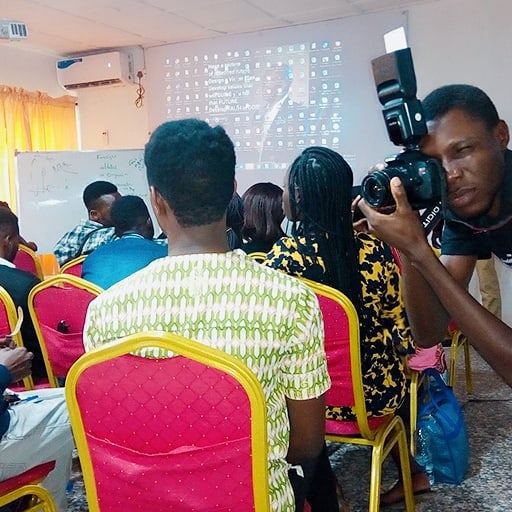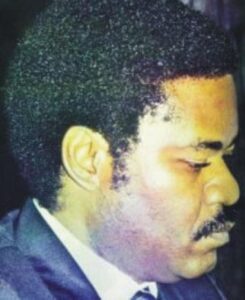Adesola Ikulajolu, freelance journalist writes on the need for Mass Communication students to respond to the wake-up call to be more passionate about their course of study and maximise opportunities for practice.
While growing up, if you were in the Science department in secondary school, your choice of profession or future career is either being a doctor and engineer, a surgeon or a pilot. If you are in the commercial department, your choice of career will lie between being a banker, an accountant or a businessman or woman. For the art department, your choice will range from being a journalist, newscaster or being a musician.
The options are products of societal beliefs, while some are as a result of parental upbringing and enforcements. Either there is the passion for such profession or not, no one cares- there is little consideration for that which in the long run creates confusion.
All these backgrounds are to pick your view from what we grew up with, back to the reality we are growing up with and to focus your attention to the subject matter of this piece- Will Mass Communication Students Meet Up With Current Media Demands?
There is currently a wide gap between the course, Mass Communication and what obtains in the Media industry. There is a school of thought that believes that Mass Communication students are not living up to the expectations in relation to the current demands of media practice. Another school of thought by students is that there are not enough opportunities to prove their competence and that of those who have graduated.
Personally, I believe that gatecrashers (those who practice professions other than what they studied in school, an example is a zoology student working as a banker) exist in every profession. However, the debate is that non-mass communication students are performing better than those that studied the course- Mass Communication.
It’s true that many non-mass communication students or graduates are outshining their counterparts who studied the course for four years in higher institutions. Several examples are evident to serve as a wakeup call to Mass Communication students and graduates.
Another fear is that we might soon have newsrooms with not-so-many trained journalists. Already, the gap is already showing in the current composition of media staff. This situation is because employers prefer graduates who have the passion and flair for the job notwithstanding their course of study.
Where are the passionate Mass Communication students and graduates with good writing prowess? Do we have Mass Communication students and graduates who can apply the knowledge of feature writing, news writing and research when they get to the industry?
The Executive Director of Media Career Services, Mr. Lekan Otufodunrin in a recent piece titled “Shame on Mass Communication students?, advised Mass Communication students and graduates to be ready to take up opportunities like some non-mass communication students are doing..
However, some veteran journalists and media practitioners are also of the view that Mass Communication students and graduates can’t compete with some non-mass communication in the industry. This view is based on indications that journalism in Nigeria is being taken over by individuals who never studied Mass Communication in school but developed a passion for the job.
Evidently, some institutions without Mass Communication departments are competing favourably with those who offer the course. After four years course, many the students and graduates are not passionate about the profession. Why is this so?
This piece is not to alienate those who didn’t study Mass Communication but are practising journalism, neither is it meant to de-market those who studied Mass Communication, but are not passionate. This is a wakeup call.
Some students even argued that there are different branches of Mass Communication, therefore, emphasis should not only be focused on Journalism. While this is true, it is noteworthy that there is no branch of Mass Communication that does not require writing- not just writing, but writing that meets the standard of the industry. How well can you leverage on your writing skill.
‘Fisayo Soyombo, the award-winning investigative journalist, once revealed how he gave assignments of ‘write every day for one year” to young students who wanted mentorship from him. From his experience, none of the students has been able to attempt the task and most of them never “even” got back to him. In like manner, Mr. Otufodunrin gave assignments to some students and only ‘very few’ attempted it. This shows the level of interest.
The bottom line is that, don’t just stop at studying Mass Communication- be passionate about it. Opportunities abound and they are for only those interested and have the required skills.
While lecturers have their own part to play, students and graduates have the bulk of the responsibilities to live up to expectations. The industry is looking for competent journalists, not based on only academic qualifications, but demonstrable skills.
It is also needful to remind Mass Communication students and graduates of the need for personal development beyond what they are taught in school. Being employable is not rocket science, it is a product of personal development.
It is practically impossible for you to graduate and be employed immediately based on your Mass Communication certificate. There is always the question of ‘what have you done?”. The industry thrives on the principles of experience, expertise and expression.
Don’t wait till when you graduate before you begin to gather the necessary experiences and expertise- the industry is competitive and only men and women of values, creativity and good communication prowess (either in writing or in speaking) can survive.
Every year, there are students gaining admission to study Mass Communication, there are also graduates of Mass Communication. While some passionately chose the course, some are offered as an alternative course. Above all, Mass Communication students and graduates must live up to expectations and meet up with current media demands.
IKULAJOLU ADESOLA is a freelance journalist and the current President of Mass Communication Department, Adekunle Ajasin University, Akungba-Akoko (AAUA).
Follow him a @oloyenaija1






